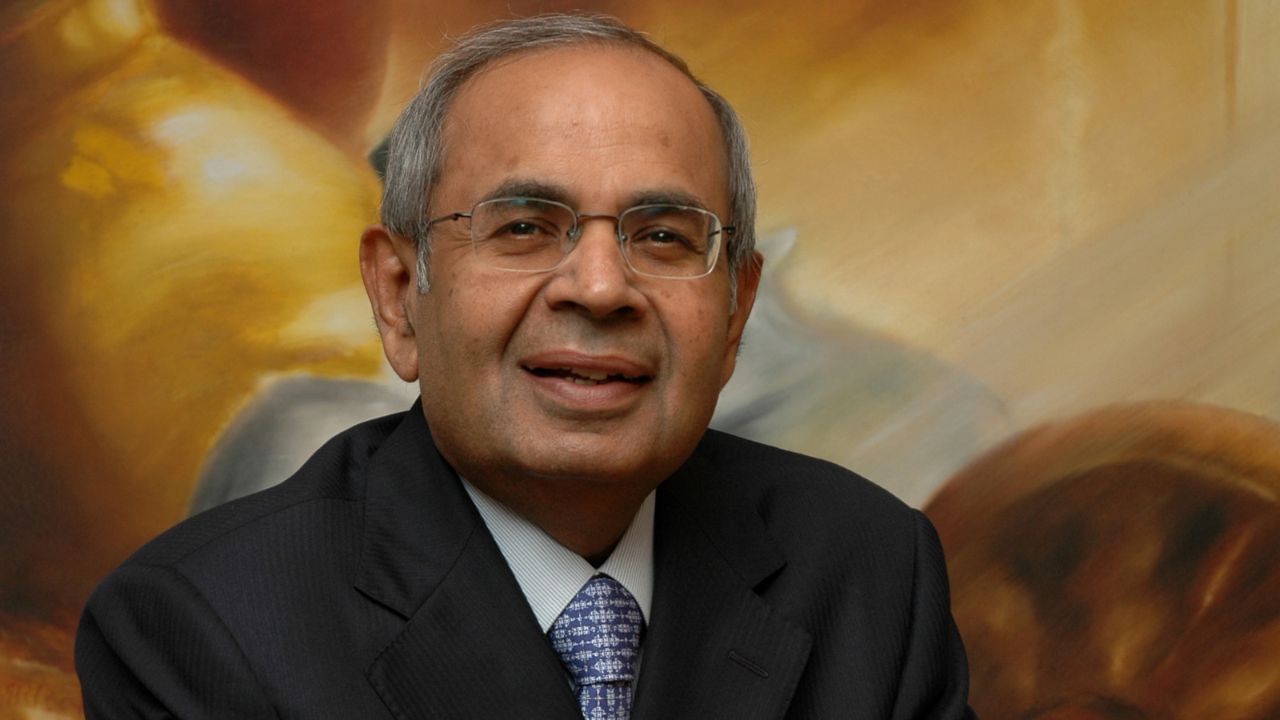Gopichand Parmanand Hinduja, popularly known as GP among his friends and business associates – passed away in London on November 4, 2025, ending an era of one of the world’s most influential business houses. He was 85 years old. For decades, the Hinduja name was synonymous with global ambition, even though he came from a family with its roots in India. Yet, behind the formality of the group’s press releases and the bright smiles of family portraits, GP was a restrained engine—extremely quiet, methodical and intensely private—who helped transform a modest business concern into a multinational empire. He rarely met outsiders.
Born into a Sindhi business family in India before the country’s independence in 1940, Gopichand grew up in License Raj India, where thrift was valued and hard work praised, but being seen as wealthy was frowned upon. His father, Parmanand Deepchand Hinduja, had already established a trading business in Iran, where he traded in everything from textiles to spices. The young GP, educated at Jai Hind College in Mumbai, joined the family business in the late 1950s and quickly gained a reputation for his subtle style. It is believed that he used to read every line of any contract twice before signing it.
By the 1970s, when India’s business environment was becoming more regulated, the family turned to the outside world. GP moved to London with his elder brother Srichand and started taking the Hinduja Group towards global expansion. He operated his now global empire from a mansion near Buckingham Palace, running a company that soon expanded from Europe to Asia and then the Middle East.
Elder brother Srichand, who died in 2023, was the public face, but it was Gopichand who shaped the strategy. A longtime colleague once said, “The SP dreamed the dream, the GP executed it.” Together, the brothers made the Hindujam Group a symbol of Indian globalism – long before another compatriot, Lakshmi Mittal, would come to London and build a global steel empire.
This is how Hinduja’s empire was established
Under the able leadership of Gopichand Hinduja, the Hinduja Group diversified beyond its business origins. A turning point came in the 1980s when the family acquired Gulf Oil International and Ashok Leyland, two deals that signaled his emergence as a serious industrialist. These acquisitions were bold and almost audacious for the time—as it was unheard of for Indian-origin businessmen to buy global assets on such a large scale.
Over the next three decades, the Hinduja Group grew into a conglomerate spanning automotive manufacturing, energy, banking, media, healthcare, infrastructure and hospitality sectors, according to its website. Its operations spanned 30 countries and employed more than 2,00,000 people. The group’s headquarters—located in a grand historic building overlooking St. James’s Park in London—became a symbol of Indian wealth in the heart of Britain. The names of both brothers were regularly included in the list of Britain’s richest people.
GP’s management philosophy was simple but effective: build a long-term business and maintain tight family control. Also do not resort to unnecessary publicity. Yet, despite being away from the limelight, the statistics spoke volumes. By the 2010s, the Hinduja brothers had topped the Sunday Times rich list, with an estimated net worth of more than £35 billion.
From the revival of Ashok Leyland to the success of IndusInd Bank, his ventures in India showcased his transformational ability. Despite being a cyclical business, Leyland has maintained its position against rival Tata Motors, and IndusInd, despite its recent troubles, is seen as a serious contender for the top positions in the Indian banking sector.
Controversy and family feud
But the story of Gopichand Hinduja, like that of many dynasties, was full of turmoil. In 2001, GP found itself embroiled in Britain’s “passport-for-cash” controversy. No charges were filed. An internal family dispute was arguably more damaging. For decades, the four Hinduja brothers – Srichand, Gopichand, Prakash and Ashok – lived by the principle that “everything belongs to everyone and nothing belongs to anyone”. This understanding broke down dramatically when in 2014 a letter claiming shared ownership of family assets became the subject of a bitter lawsuit in a London court.
And then came European legal difficulties. In 2024, members of the Swiss branch of the family were convicted of exploiting domestic workers. The GP himself was not personally involved in this. Despite all this, he maintained his characteristic composure. He was known among his friends as a person who rarely raised his voice even in times of crisis.
With GP’s demise, the two surviving members of his generation, Ashok and Prakash Hinduja, are likely to take over the operational responsibilities, while the operational companies will continue to be managed by professional boards. But with his demise the group has lost a respected mentor and their wise advisor.
